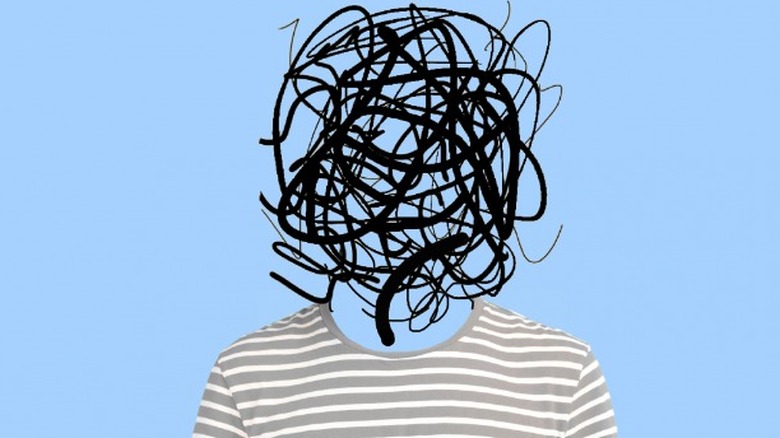If you have ever had excessive worrisome thoughts, a pounding chest, sweating, shaking, rapid breathing, or feelings of tension or nervousness then you may have experienced anxiety (per Mayo Clinic). Anxiety is part of the normal human condition, but it can be debilitating when it interferes with your life to the point that you have repetitive episodes that negatively affect your day to day life, alter your quality of life, and your ability to control those feelings of anxiety.
Anxiety is a common and widespread mental health concern in the United States. For example, over 31% of the United States adults are estimated to deal with an anxiety disorder at some point in their lives (via National Institute of Mental Health). Not only can anxiety affect your waking life, it can also negatively impact your sleep. According to the Sleep Foundation, anxiety can cause sleep problems like insomnia. In fact, if the problem persists it can create a feedback loop where someone’s dread about falling asleep can lead to more anxiety, which makes it more difficult to fall asleep. You might wonder if there are any tips or tricks to help assuage anxiety and any related sleep problems.
One place people often turn to for fresh tips on anxiety is TikTok, the social media platform. TikTok health trends are popular, but they do not always come from health experts. Here’s everything you need to know about the ‘icing your chest’ trend and if it really works.
The theory behind the trend

The ‘icing your chest’ TikTok health trend is a simple trick that can purportedly reduce anxiety in the moment and also promote a good night’s sleep (per Everyday Health). The health claim is that by icing the chest, the vagus nerve is stimulated. The vagus nerve, or wandering nerve, travels from the brain to the abdomen and reduces the heart rate and promotes relaxation through the parasympathetic nervous system, reports Psych Central. However, it is unclear if this claim is supported by research.
A 2024 study published in the journal JMIR Formative Research found that cold stimulation on the side of the neck can lower heart rate, which suggests an increase in the activity of the vagal nerve. However, the study did not look at cold stimulation on the chest. But another TikTok video by Dr. Alan Mendell — a chiropractor — claims that placing an ice pack on your chest aids in activating the vagus nerve, which can help with stress and promote sleep (via India Times). However not all health experts agree, citing a lack of research on how cold stimulation impacts overall vagal nerve activity, reports Everyday Health. If you have issues with anxiety or poor sleep, talk to your doctor first before you try the ‘icing your chest’ trend.